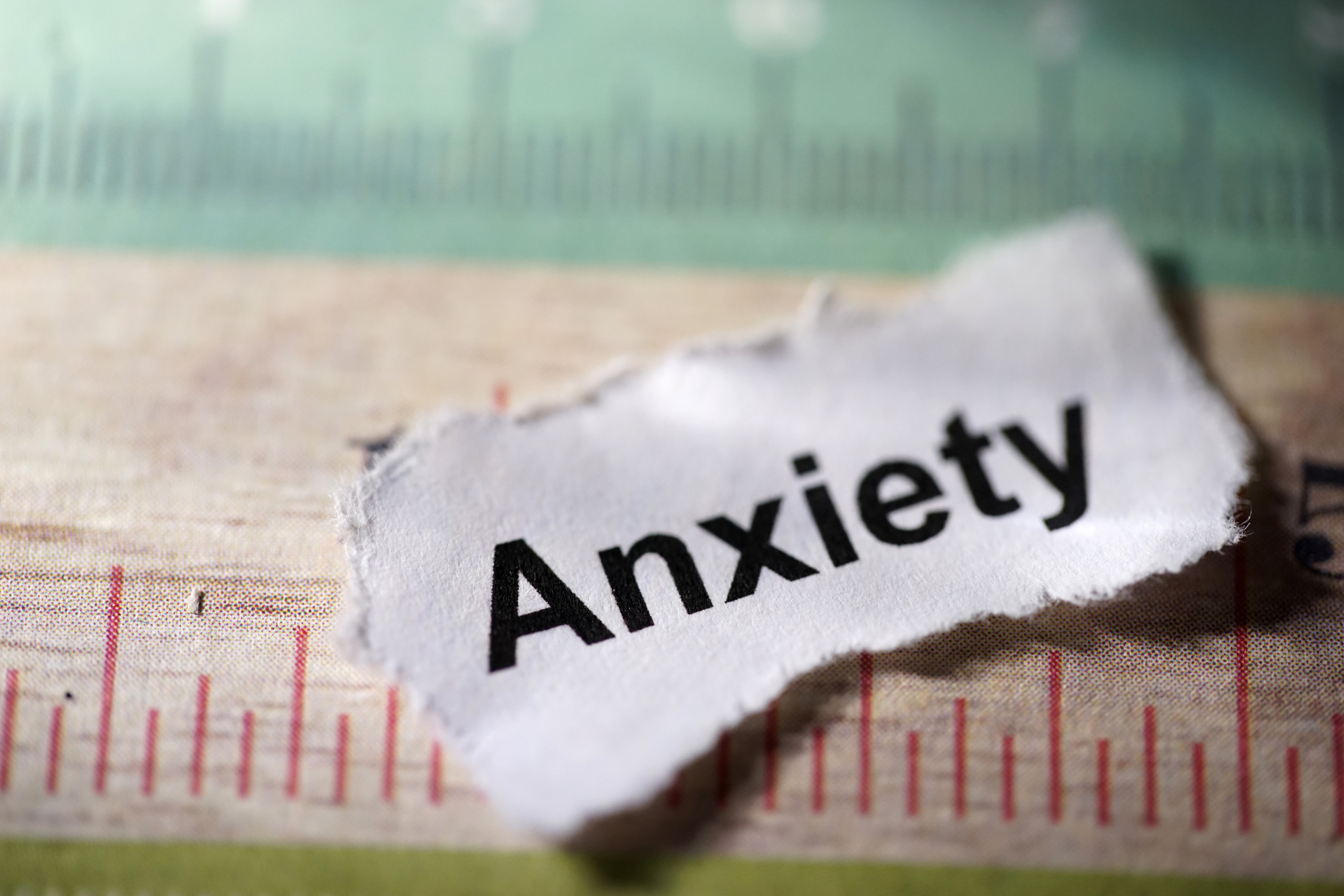
Anxiety Therapy
Do You Feel Like You’re Always Living In Fear Of The Future?
Has anxiety made it impossible to feel present in your life?
Are you tired of always overthinking things and planning for the worst-case scenario?
Have your symptoms started to affect your job performance, school performance, and relationships?
Maybe you feel restless, wound up, or on edge. Perhaps you’re struggling with panic attacks, racing thoughts, and a constant feeling of impending doom. Each night, maybe you’re too busy worrying about the next day to fall asleep. You probably wish there was a way to quiet your thoughts and get some rest—but anxiety never seems to let you catch a break.
Anxiety Can Lead To Loneliness And Make Your Whole World Feel Small
If you’re struggling with social anxiety and fear of judgment, your symptoms could temporarily make you feel safe. They might prevent you from speaking up in class or attending that social event you’ve been dreading. But as time goes on and you continue to pass up new opportunities, this kind of existence gets lonely. The less you do, the worse you feel—creating an endless cycle of fear and isolation.
You don’t have to keep living this way. Here at Lift Wellness Group, our empowering approach to therapy can help you manage your anxiety so that you can feel present in the moment instead of always dwelling on the future.
Anxiety Serves A Protective Function—But It Often Becomes Too Powerful For Its Own Good
There’s always a purpose behind anxiety. At its core, it’s a survival mechanism that drives you to prepare for dangerous or stressful situations. That’s why feeling a little anxious before a big test or a job interview can be helpful, giving you an extra dose of alertness and motivation.
But for many people, this protective function spirals out of control and affects their quality of life. When that happens, anxiety becomes a disorder.
Approximately 20 percent of adults in the US have an anxiety disorder—yet only about 43 percent of them get the treatment they need.* Many of them live with undiagnosed anxiety and struggle in silence. This is especially the case in the wake of COVID-19, as people all over the world are dealing with residual health anxiety.
Trying To Solve Anxiety Without Treatment Isn’t Always Possible
Our society is obsessed with quick fixes. When most people try to manage their stress and anxiety, they often turn to alcohol, over-the-counter medications, or self-help books. The problem is that these solutions don’t address the unique purpose behind each person’s anxiety. They are emotional Band-Aids—able to quell the pain temporarily, but unable to provide long-lasting healing.
In order to uncover the deeper issues driving anxiety, oftentimes you need the insight of a therapist. The right professional can give you the tools to heal anxiety at its source.
Therapy Can Help You Explore The Function Of Your Anxiety And Regulate Stress More Effectively
Many people want to get rid of their anxiety entirely. Not only is this unrealistic, but it isn’t healthy. Treating anxiety successfully doesn’t mean eliminating it, but regulating it so that you can lead a more balanced life. At Lift Wellness Group, we want to help you change your relationship with anxiety and learn real-life skills for managing its impact.
Our sessions provide a safe, neutral space to talk about your experience and practice new skills with your therapist as a guide. Together, you and your therapist will look at the factors that led to anxiety and work on distress-tolerance skills for decreasing your symptoms and improving your quality of life.
What To Expect In Anxiety Therapy Sessions
The first step of counseling is generally exploring the function of your anxiety. We’ll look at how it has served you in the past and figure out what it’s protecting you from. For instance, maybe feeling anxious kept you safe and alert in a toxic relationship. Yet when the relationship ended, your anxiety persisted. Therapy can help you understand how the skills that once benefited you may be maladaptive today.
You and your therapist will work on replacing maladaptive coping skills—such as drinking or isolating—with healthier and more adaptive ones. What these skills look like depends on what works best for you. You might use mindfulness practices like square breathing and intuitive body movement to shift the anxiety in your body. And if you’re struggling with social anxiety, therapy can focus on building social skills and improving your self-confidence.
Creating Your Anxiety Treatment Plan
In addition to therapy, Lift Wellness Group has prescribers on staff. Generally speaking, the best way to treat anxiety is through a combination of talk therapy and medication management (although whether you take medication is entirely your choice).
Our practice draws from many different approaches to treat anxiety. We often use Exposure Response Prevention (ERP) therapy, a technique for safely and gradually confronting the sources of your anxiety. For instance, suppose you get anxious speaking up in class. ERP can help you practice speaking up in a controlled environment, allowing you to work your way up to doing it in a classroom setting.
We also draw from Cognitive Behavioral Therapy (CBT). This approach looks at how your thoughts, emotions, and behaviors are all linked together. CBT can help you challenge the automatic thoughts fueling your anxiety and change the way you think about yourself and your life.
With the right therapeutic approach and the help of a professional team, we believe that you can learn to manage your stress more effectively and lead a fuller, more enriching life.
You May Have Some Questions About Anxiety Therapy…
I feel ashamed admitting I need help—after all, everyone gets anxious.
Even though some people use the phrase “I have anxiety” in a colloquial way, anxiety is a serious mental health condition. Everyone experiences anxiety from time to time, but not everyone suffers from it to the same degree. When anxiety is affecting your quality of life—so much so that you’re unable to sleep, socialize normally, or get things done—that’s a sign that you should seek therapy.
I don’t want to talk about my childhood trauma or get too emotional.
If your anxiety is related to trauma, there is no need to go into detail about your experience. The goal of therapy is to help you leave sessions feeling less anxious, not more anxious. However, we’ll also give you strategies for managing intense feelings when they arise. This way, you’ll be prepared if you find yourself feeling anxious during sessions.
I don’t have the time to devote to therapy right now.
We get it—you have a lot going on. Many of us are used to over-functioning and pushing ourselves beyond what we can handle. Think about what could happen if you devote just one hour to self-care each week. When you invest in yourself and your mental health, every area of your life generally improves.
You Can Feel Present Again
If you want to stop worrying about the future and start living in the moment, we are confident that our compassionate approach to anxiety therapy can help you. To get started, use the contact form or call our intake number at 203-908-5603.
*https://adaa.org/understanding-anxiety/facts-statistics







